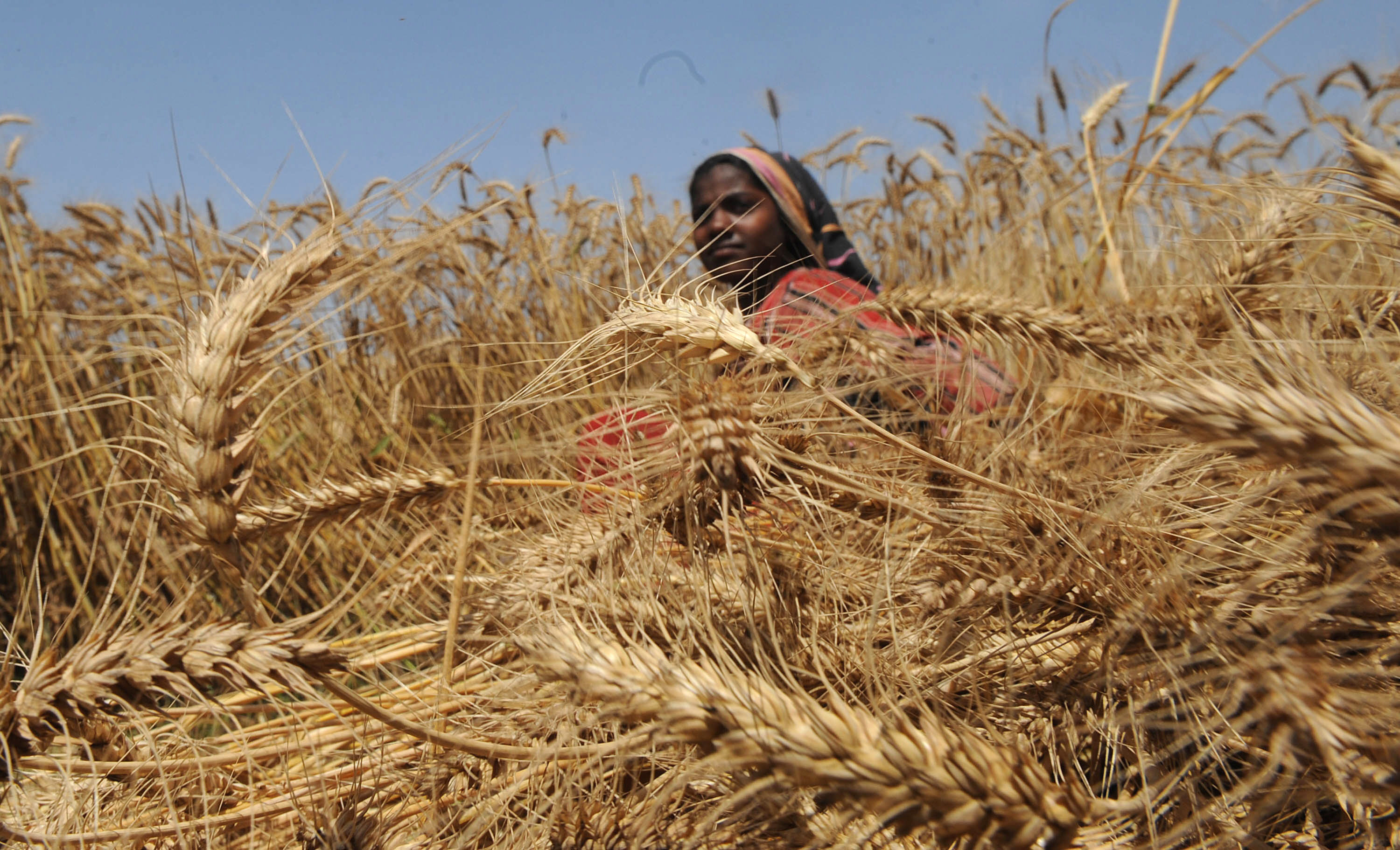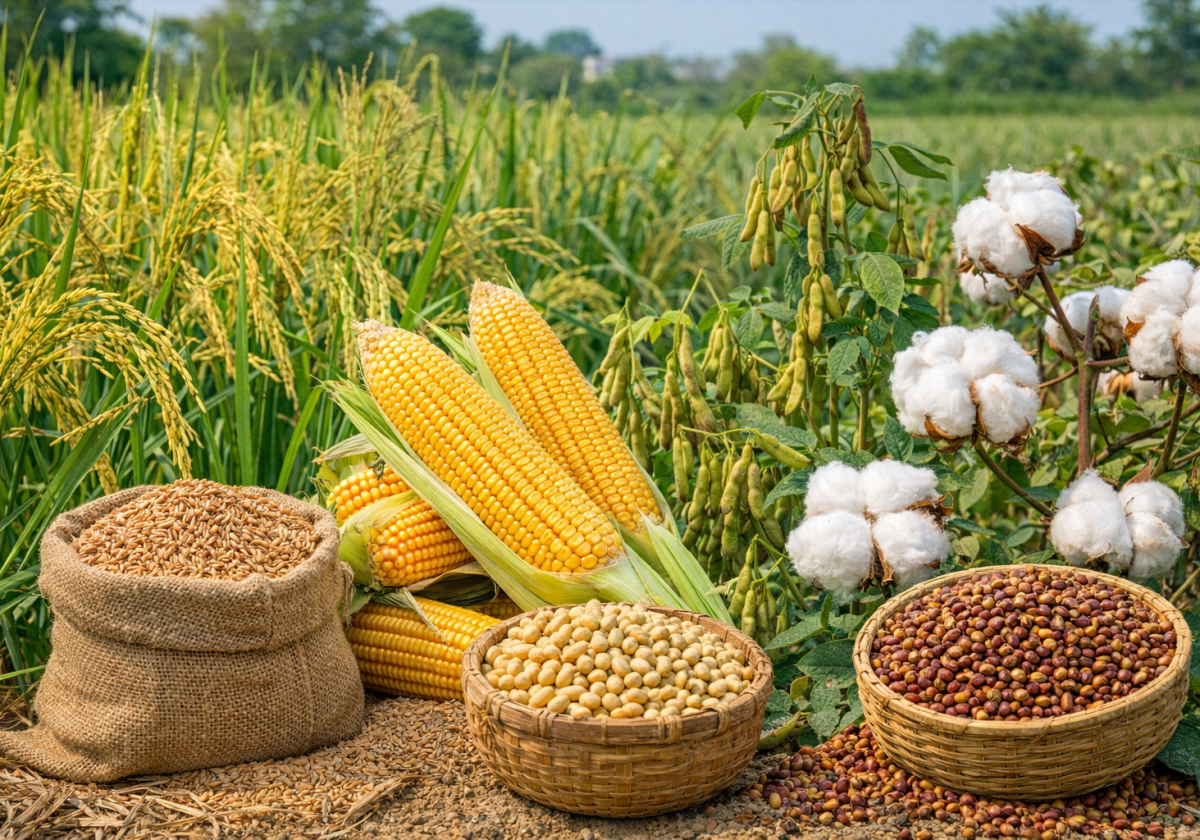Familiar with Climate Change? Of course, we’ve all been hearing great speeches about the well-known phenomenon every now and then.

In explanation to what it is, in simpler terms, it is basically a situation that usually occurs due to a rise in temperature of the earth surface and in the atmosphere which further involves many other factors. Although it’s a natural process, many human activities are equally responsible for the change such as growing population with rapid urbanization and industrialization, building construction and reduction in forest area, etc. Since it may increase 15% to 40% rainfall and annual mean temperature by 3℃ to 6℃, Climate Change adversely affects the food security through agriculture production in four dimensions: food availability, food accessibility, food utilization, and food system stability. Leading to have an impact on human health and livelihood assets as well.

As per the second Biennial Update Report submitted by the Government of India to the United Nations Framework Convention on Climate Change, it mentions that the agriculture sector is responsible for 16.2% of the total Greenhouse gas emissions. Studies carried out at the Indian Agricultural Research Institute (IARI) have indicated the possibility of a loss of 4 to 5 MMT in wheat production with every 1℃ rise in temperature. As per The Economic Survey in 2020, agricultural productivity is also constrained by a lower level of mechanization in Indian agriculture which is about 40%.

Whether the introduction of electric tractors in India will help farmers and improve future farming by preventing climate change?
Talking from a farmer’s perspective, a farmer always looks for a way to make farming easier and less expensive. And to this problem, technology is the solution.
Due to the reduction of fuel consumption, electric tractors are important for farming since they operate on batteries, making farming economical. Even as farmland income being boost by the use of technology, more can be done to solve the burden on the farmers.
Since they are quieter and can increase production at a low cost, the electrical energy produced by wind, sun, wastes, and animal manure and ensure to be futurist solutions for reducing pollution and dependency on fossil fuels.

Why electric tractors could be better for future farming?
- Eco-friendly: Since electric tractors can be charged by batteries and even solar panels, electric tractors are eco-friendly in nature as compared to traditional ones. Thus, if you have your solar power system set up on your farm, your electricity bills become minimal or even non-existent. As an add on, these don’t make noise while in use, don’t require extra expenses on fuel for maintenance and are much more efficient comparatively. No smoke is another achievement of an electric tractor.
- Cost-effective: Cost reduction surely is done by the electric drive; reduction of fossil fuel is the best example of that. Prices of these tractors are almost the same as traditional tractors. Cost reduction is an important benefit of electric tractors because the high cost is a big problem for farmers. The electrical tractor is reducing extra cost as compared to diesel tractors in a literal way.
- More efficiency: Electric tractors are efficient; it gives great accuracy when it works. The diesel tractor has 45% efficiency when it converts thermal energy into mechanical energy. The electric motor, on the other hand, touts a 90% efficiency rate. Of course, you also have to factor in charging the batteries, which has about an 80% efficiency rating. Even so, an electric motor’s efficiency still beats the pants off a diesel engine.
- Repair and Maintenence: When farmers have worked to do on the field, the most important thing that a farmer is going to do is fixing your tractor. Electric tractors have fewer moving parts, meaning fewer things that go wrong. So repairing and maintenance costs reduce and your tractor works for more periods.
- Greater Accuracy: Mechanical drive motors (diesel engines) don’t have the highest precision in the world. Electric motors, on the other hand, enable a more accurate system. Take precision seeding, for example. Some electric systems boast a seeding accuracy to within one centimetre even when you’re trucking along at 20 kph. This greater accuracy means you spend less time in the field on menial tasks like seeding.

Concluding all the special features an electric tractor has, the most important ones are the following:
- E-tractors will save the time of farmers because the thing about the e-tractor will be that its engine will not have about 300 parts that come with the engine of a normal or diesel tractor.
- The e-tractor will have facilities such as battery swapping, regenerative braking, power inversion (tractor charging UPS) and fast charging.
- The power of electric tractor is 6hp which is equivalent to a 21 hp diesel tractor and can run up to 75 km at a speed of 20 kmph on a single charge.
- Electric tractor takes up to six hours to fully charge the battery in a residential environment whereas the battery in the industrial power socket can fast charge in 2 hours.
- The e-tractor is designed according to zero-emission, which is environmentally friendly.

Traditional tractors are powered by either diesel or gasoline and have transmission powered with hydraulic fluids, but electric tractors are different. They are powered by electronics batteries that can be recharged simply by plugging them into a socket. An electric tractor can go 5-10 years and all they may need is a battery change anyone can do that, unlike diesel tractors which need a complete engine rebuild after 6000 hours operation that can be almost as expensive as a new tractor. Moreover, electric tractors have a number of advantages over their diesel tractors but most importantly they do not produce CO2 emission or other air pollution directly.








 Connect With Us
Connect With Us